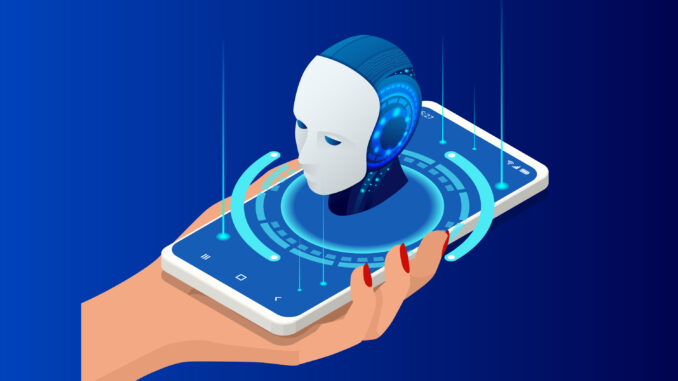
Artificial intelligence has gone from being a futuristic buzzword to a practical tool millions use daily. One of the most popular AI tools today is ChatGPT — a conversational AI that can answer questions, generate text, brainstorm ideas, and even assist with professional tasks.
If you’re new to ChatGPT, this guide will explain what it is, how it works, and how people use it in personal and professional settings.
What Exactly is ChatGPT?
ChatGPT is a type of artificial intelligence developed by OpenAI. It uses a large language model (LLM), which means it has been trained on a massive amount of text from books, articles, websites, and conversations.
Instead of spitting out canned responses, ChatGPT can understand the context of your question and give you answers that sound surprisingly human. You type in a question or prompt, and ChatGPT generates a response in natural language — almost like chatting with a knowledgeable friend.
Everyday Personal Uses
One of the easiest ways to think about ChatGPT is as a personal assistant, which is always available. Here are some of the most common personal uses:
-
Emails and Messages: Need to write a professional email or a quick thank-you note? ChatGPT can draft it in seconds.
-
Homework Help: Students use it to explain complex concepts, summarize chapters, or practice language skills.
-
Research Summaries: ChatGPT can condense long articles or documents into easy-to-read summaries.
-
Travel Planning: From crafting itineraries to finding hidden gems, ChatGPT helps plan trips tailored to your interests.
-
Cooking and Meal Prep: Ask it for recipes, substitutions, or even meal plans based on what’s in your fridge.
-
Creative Fun: People use ChatGPT to write poems, brainstorm story ideas, or even roleplay as historical figures.
In short, ChatGPT can make day-to-day life smoother, more productive, and sometimes even more fun.
Business and Professional Applications
Where ChatGPT really shines is in the workplace. Professionals across industries are finding ways to use it as a productivity multiplier. Here are examples of how different teams are putting ChatGPT to work:
Marketing & Content Creation
-
Drafting ad copy and email campaigns.
-
Creating blog outlines and SEO-friendly articles.
-
Generating social media captions, hashtags, and content calendars.
-
Brainstorming new product names, slogans, or taglines.
Sales & Customer Engagement
-
Writing sales scripts and objection-handling responses.
-
Generating follow-up emails after meetings.
-
Practicing roleplay conversations to train sales reps.
-
Drafting customer-facing FAQs and chatbot responses.
Human Resources
-
Writing job descriptions tailored to specific roles.
-
Drafting interview questions.
-
Summarizing employee feedback or survey results.
-
Creating onboarding guides and training materials.
Customer Support
-
Drafting clear, empathetic responses to customer inquiries.
-
Suggesting standard replies for common issues.
-
Helping companies design self-service chatbots that run 24/7.
Finance & Operations
-
Explaining financial reports in plain English.
-
Drafting presentations for executives or clients.
-
Creating templates for budgets, invoices, or project plans.
Education & Training
-
Helping teachers create lesson plans or quizzes.
-
Assisting tutors in providing examples or practice problems.
-
Supporting learners with bite-sized explanations of complex topics.
Technology & Programming
-
Debugging code with detailed step-by-step suggestions.
-
Writing scripts and automating repetitive tasks.
-
Teaching programming concepts to beginners in plain language.
Real Estate & Professional Services
-
Writing compelling property descriptions.
-
Drafting proposals, contracts, or client letters.
-
Creating personalized follow-up emails for leads.
From small businesses to large enterprises, ChatGPT is proving to be a versatile assistant that reduces workload and accelerates output.
Niche Industry Examples
Beyond general business use, ChatGPT is also being adopted in specialized industries. Here are some interesting ways it’s being used:
-
Healthcare: Assisting with patient communication, drafting educational materials, and simplifying medical jargon for non-experts. (Always with human oversight — ChatGPT is not a doctor.)
-
Nonprofits: Drafting grant proposals, fundraising letters, and volunteer communications.
-
Legal: Summarizing lengthy contracts or creating drafts of standard legal documents. (Again, requires attorney review — not a replacement for legal advice.)
-
Creative Arts: Helping musicians brainstorm lyrics, artists come up with project ideas, and authors overcome writer’s block.
-
Journalism: Assisting with background research, outlining articles, and fact-checking drafts.
-
Event Planning: Suggesting themes, drafting schedules, and managing guest communication.
The flexibility of ChatGPT makes it easy to adapt across almost any profession.
The Limitations You Should Know
While ChatGPT is powerful, it’s important to understand what it can’t do:
-
It doesn’t “know” everything — it generates responses based on patterns, not personal experience.
-
It can sometimes give outdated or inaccurate information.
-
It doesn’t replace expert advice in fields like medicine, law, or finance.
-
It works best when guided with clear, specific prompts.
Think of ChatGPT as a partner: it drafts, you refine. Together, you get faster, better results.
How to Get the Most Out of ChatGPT
If you’re just starting out, here are a few quick tips:
-
Be Specific: Instead of “write an article,” ask “write a 500-word article about healthy eating tips for seniors.”
-
Iterate: Don’t expect the first answer to be perfect. You can ask ChatGPT to revise, expand, or change the tone.
-
Double-Check Facts: Especially in areas like health, finance, or law.
-
Experiment: Try it out on both personal and business tasks to see what saves you the most time.
The Bottom Line
ChatGPT is more than just a chatbot — it’s a versatile assistant for both personal life and professional work. Whether you’re writing an email, planning a trip, creating marketing campaigns, training employees, or even debugging code, ChatGPT can help you do it faster, smarter, and with a spark of creativity.
